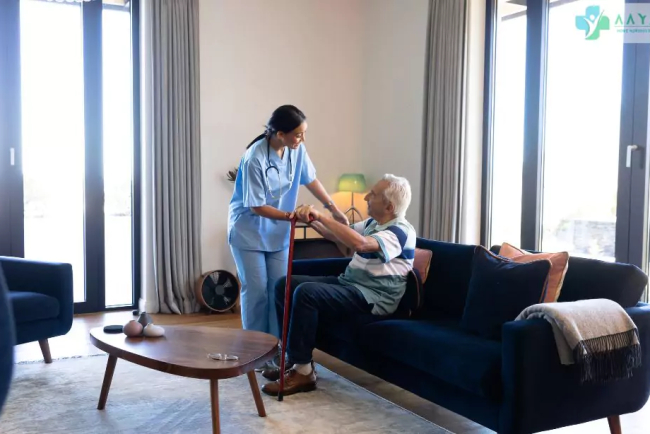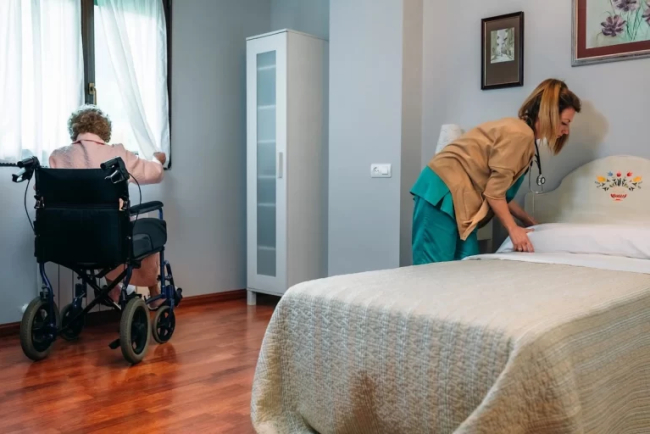Post-Surgery Care Made Easy: How Home Nurses in Bangalore Help You Heal Comfortably
Recover faster with trained home nurses in Bangalore, medications, sterile wound care, pain support, physio coordination, and 24/7 plans. Book Aayan Global.
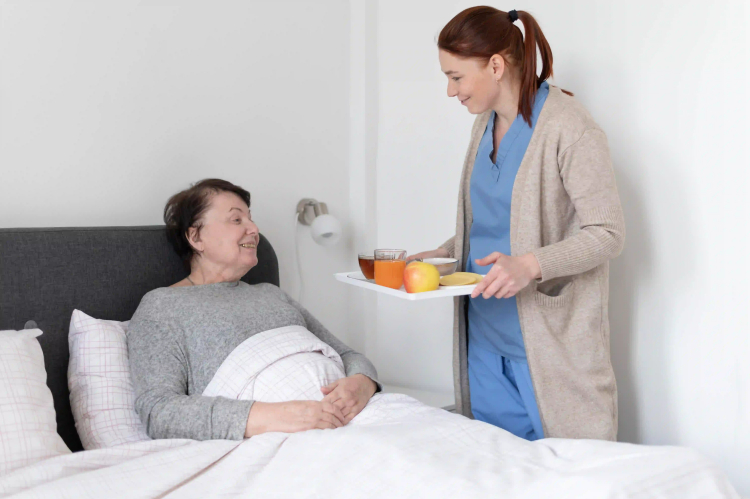
Recovery doesn't end when surgery does it begins. The first few weeks decide how quickly you heal. Pain, restricted movement, dressing changes, and the anxiety of "am I doing this right? can slow progress and raise risks. This is where trained home nurses in Bangalore make a decisive difference. They bring hospital-grade nursing care at home to your doorstep, guiding medications, vitals, and wound care while supporting mobility, diet, and daily routines. With Bengaluru families increasingly opting for professional care at home, patients benefit from fewer hospital-acquired infections, safer rest, and personalised attention. This article explains the essentials: why post-surgery care matters, what services home nurses provide, how they prevent complications, practical tips for families, and a checklist to choose the right provider.
Understanding Post-Surgery Care and Its Importance
What Is Post-Surgical Care?
Post-surgical care is the planned support a patient receives after an operation to help the body heal safely. It combines medical supervision (vitals, medications, wound checks), physical support (mobility, breathing exercises), and emotional reassurance. In home settings, this care follows the surgeon’s protocol but adapts to daily life sleep, diet, hygiene, and pain control, so recovery continues smoothly outside the hospital.
Common Post-Surgery Challenges Patients Face
- Pain and discomfort: Managing analgesics on time and using non-drug measures (positioning, ice/heat as advised).
- Dressing and wound care: Keeping incisions clean and dry, spotting redness, discharge, or foul odour early.
- Infection risk: Hand hygiene, sterile dressing technique, and temperature checks to detect fever promptly.
- Medication & vitals: Right dosage, avoiding missed doses, monitoring BP, pulse, SpO₂, and glucose when indicated.
- Limited mobility & ADLs: Help with walking, toileting, bathing, and preventing stiffness or pressure sores.
Why Timely Care Matters in Recovery
Early, consistent care reduces complications like wound infections, pneumonia, urinary infections, and blood clots risks that rise when pain, mobility, and hygiene are poorly managed. Regular monitoring catches warning signs (fever, increasing pain, calf swelling, shortness of breath) before they escalate. Guided mobilisation and breathing exercises restore circulation and lung function faster, while scheduled nutrition and hydration support tissue repair. Just as vital is emotional support: reassurance lowers anxiety and improves sleep and adherence to doctor instructions. In Bengaluru, where families balance work and caregiving, timely home-based care bridges hospital protocols with real-life routines helping patients recover safely, confidently, and on schedule.
Role of Home Nurses in Post-Surgery Recovery
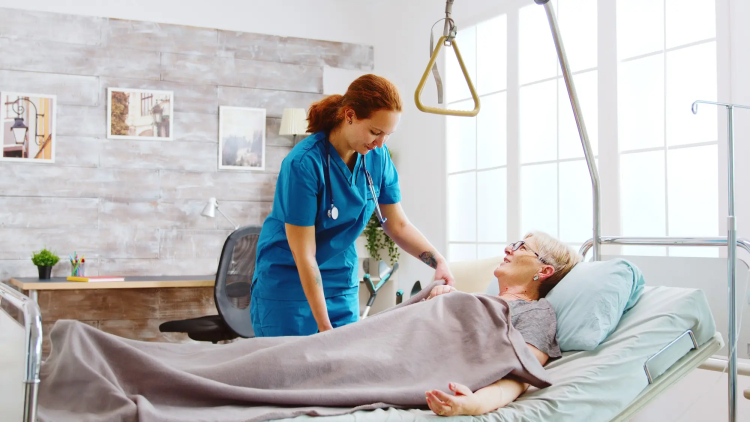
Trained home nurses bridge the gap between hospital discharge and daily life at home. They translate the surgeon’s plan into safe routines, ensuring medical accuracy while keeping the environment calm, clean, and confidence-building.
Personalised Medical Assistance at Home
Home nurses track blood pressure, temperature, pulse, and oxygen saturation on schedule; record trends; and escalate promptly. They organise pill boxes, set reminders, and administer medications as prescribed. Dressings are changed aseptically, drains are measured, and stitches or staples are inspected exactly per the doctor’s notes.
Pain Management and Post-Surgery Support
Nurses reinforce pain-relief timing, evaluate pain scales, and use simple comfort measures positioning, guided breathing, cold/hot compress as ordered. They cue early, gentle mobilisation, coordinate bedside physiotherapy plans, and prevent stiffness, helping patients walk safely and sleep better.
Preventing Post-Operative Complications
Vigilant observation helps catch symptoms such as fever, redness, foul discharge, calf pain, or breathlessness early. Nurses maintain hand hygiene, wound hygiene, and skin care; support hydration and a protein-rich diet; and follow catheter, drain, and IV protocols when included in the plan. Any red flags are conveyed to the treating doctor without delay.
Emotional and Mental Health Support
Recovery can feel isolating. Nurses provide empathy, reassurance, and practical coaching how to bathe, dress, or sit and stand without strain. They set achievable daily goals, celebrate small wins, and educate families so patients regain independence with dignity.
Coordination and Documentation
Beyond tasks, good home nurses maintain accurate records, coordinate with physiotherapists and dietitians, and arrange reviews or lab tests as ordered. For Bengaluru families balancing work and caregiving, this professional oversight reduces hospital visits, lowers infection exposure, and sustains momentum turning "nursing care at home" into a safe, structured pathway back to normal life. It shortens recovery timelines and hospital readmissions.
Advantages of Choosing Home Nursing Over Prolonged Hospital Stay
- Lower infection risk: Recovering at home reduces exposure to hospital-acquired infections, especially after wound or catheter use.
- Personalised attention: One-to-one nursing care at home ensures timely medication administration, vital sign tracking, and a faster response to discomfort or red flags.
- Comfort & better sleep: Familiar surroundings, family presence, and flexible routines support pain control, appetite, and mental wellbeing.
- Cost efficiency: Fewer bed charges and ancillary hospital costs; you pay only for the required post-surgery home care hours or shifts.
- Family involvement: Nurses train caregivers in safe mobility, hygiene, and dressing changes, improving continuity of care between visits.
- Smoother rehab: Coordinated home visits (nurse + physiotherapy) help patients resume daily activities sooner, reducing readmission chances.
Types of Post-Surgery Home Nursing Services in Bangalore
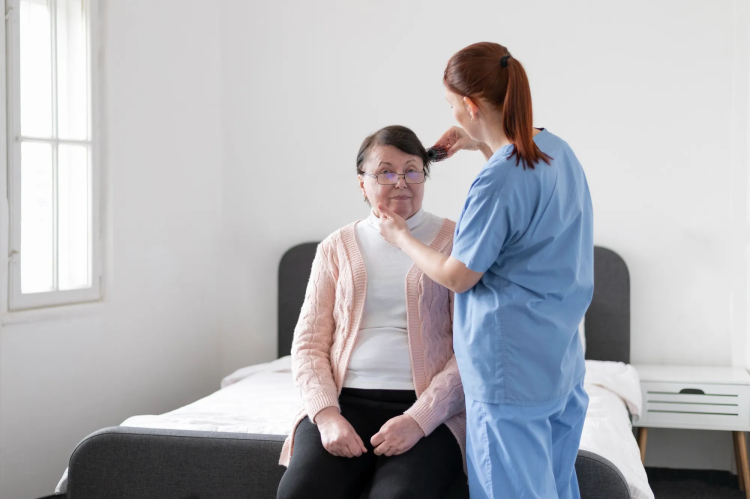
Different surgeries heal at various speeds, so home nursing plans in Bengaluru are customised to the operation, age, comorbidities, and home setup. Providers typically combine nurse shifts, physiotherapy, and diet guidance into a practical, doctor-aligned schedule that can scale up or down week by week.
Basic Nursing Care
Routine vitals monitoring, dressing changes, drain measurement, medication reminders, and assistance with bathing, toileting, and safe transfers. Ideal for laparoscopic procedures, hernia repair, minor orthopaedics, or stable recovery stages after discharge.
Advanced Medical Care
For major cardiac, orthopaedic, abdominal, or neuro procedures. Includes sterile wound care, IV/IM injections, catheter and stoma care, tracheostomy care as prescribed, pressure-sore prevention, and escalation protocols. Nurses document trends and coordinate with the surgeon on any deviations.
Physiotherapy and Mobility Support
Goal-based rehab to restore range of motion, balance, and gait after joint replacement or spine surgery. Sessions may include breathing exercises, isometrics, bedside mobilisation, walker training, and home-safety modifications to prevent falls.
Nutrition and Diet Monitoring
Nurses reinforce doctor-recommended diets protein, fluids, fibre and track intake, weight, bowel habits, and sugar levels when required. They coordinate with dietitians for conditions such as anaemia, diabetes, or renal issues and flag appetite loss or nausea for timely review.
24/7 or Hourly Nursing Assistance
Flexible staffing to match dependency. Options range from hourly visits for dressings or injections to 12-hour and 24-hour shifts for high-risk cases. Round-the-clock oversight supports pain control, hygiene, medication accuracy, and urgent coordination if warning signs appear.
Add-On Services
Lab sample collection at home, pharmacy drop-offs, equipment rental (BP monitor, oxygen concentrator, hospital bed), wound-care kits, and teleconsults. These services reduce travel and waiting time while keeping the recovery plan consistent with hospital instructions. Packages are reviewed weekly to match recovery milestones closely.
How Home Nurses in Bangalore Ensure Holistic Recovery
Recovery is never only physical. Surgery affects routines, confidence, sleep, and family dynamics; holistic home nursing steadies all of these so the body can focus on healing.
Coordination with Doctors and Physiotherapists
Home nurses keep the whole care circle aligned. They share vital trends, wound photos when requested, and progress notes with the treating physician. Physiotherapy goals range, balance, endurance are built into the daily schedule, not left for "later." If pain spikes, swelling increases, or mobility regresses, nurses escalate promptly and help arrange teleconsults, lab tests, or review visits so treatment stays on track.
Educating Family Members
Families often worry they'll "do it wrong." Nurses teach safe transfer techniques, positioning, and breathing exercises; demonstrate hand hygiene and sterile dressing steps; and explain medication timing, side effects, and storage. They create simple checklists on the fridge fluids, protein targets, walk counts, bowel care so care continues between visits. With clear dos and don’ts, relatives feel confident and the patient feels supported, not overprotected.
Emotional Wellness and Patient Motivation
Healing accelerates in a calm, encouraging environment. Nurses use reassurance, active listening, and realistic goal-setting to reduce fear and frustration. They pace activities to preserve dignity privacy during bathing, comfortable clothing, pain checks before movement and celebrate small wins like climbing a step or sleeping through the night. This steady motivation prevents withdrawal, improves appetite, and sustains adherence to exercises and medicines.
Use of Technology in Modern Home Nursing
Innovative tools make home care safer. Nurses use calibrated BP machines, SpO₂ monitors, glucose meters, and digital thermometers, logging readings in shared apps for families and doctors. Medication reminders reduce missed doses; video check-ins enable quick clarifications; and fall-risk audits suggest simple fixes night lights, anti-skid mats, grab bars. Technology complements human care, providing visibility and faster responses without disrupting rest.
How to Choose the Right Home Nursing Service in Bangalore

Selecting trained, certified professionals is critical for safe post-surgery home care. A good provider aligns with the surgeon’s plan, communicates clearly, and adapts to your home setup so recovery stays smooth and complication-free.
Qualifications and Certifications
Confirm that nurses hold a valid GNM/B.Sc. Nursing or higher, with updated registrations (KNC/INC) and documented post-operative training. Ask for proof of competencies: sterile dressing, catheter care, IV/IM administration, and basic life support (BLS).
Experience in Handling Specific Surgeries
Match experience to the surgery. For orthopaedic cases (TKR/THR, spine), look for mobility and pain-protocol expertise. For cardiac or abdominal surgeries, ensure familiarity with drain care, anticoagulation schedules, and red-flag symptoms. Speciality experience shortens the learning curve at home.
Reviews and Service Reputation
Scan testimonials and third-party ratings; request 2–3 recent references. A reliable Bangalore nursing home or home-care agency will share outcome metrics readmission rates, infection incidents, and escalation turnaround times.
Availability and Flexibility
Post-surgical recovery fluctuates. Choose providers with 24/7 cover, rapid replacement in case of absence, and the ability to scale from hourly visits to 12-hour/24-hour shifts. Confirm emergency escalation pathways and on-call doctor/physio coordination.
Cost Transparency and Custom Care Plans
Insist on an itemised estimate: nurse shift rates, consumables, dressing kits, travel, and optional add-ons (physiotherapy, lab sample pick-up, equipment rentals). Avoid vague “package” labels care plans should state frequency of visits, clinical goals, and review dates, with no hidden charges.
Quick checklist: Verify ID + registration, speciality experience, references, shift flexibility, escalation protocol, and a written plan aligned to the surgeon's advice. The right home-nursing partner turns "nursing care at home" into a safe, predictable pathway back to everyday life.
Practical Tips for Families During Post-Surgery Home Care
- Prepare the recovery space: Clear clutter, keep a sturdy chair with arms, arrange night lights, and place essentials medications, water, call bell/phone within arm’s reach. Anti-skid mats and grab bars near the bathroom reduce fall risk.
- Create a simple daily checklist: Track vitals (BP, pulse, temperature, SpO₂ if advised), pain score (0–10), fluid intake, protein goals, bowel/urine output, walk counts, and dressing change dates. This keeps post-surgery home care structured and makes it easier for doctors to update records.
- Follow medication timing precisely: Use a pill box and alarms. Note the purpose and side effects of each drug (e.g., anticoagulants, antibiotics, pain meds). Never crush/alter tablets unless the doctor approves. Record any missed doses and inform the nurse.
- Protect the wound and hygiene: Wash hands before touching dressings. Keep the incision clean and dry; avoid talc/creams unless prescribed. Watch for fever, increasing redness, swelling, foul odour, sudden pain, or discharge alert your home nurse in Bangalore promptly.
- Support safe mobility and breathing: Before walks, confirm pain control; use walker or belt as trained. Do ankle pumps, incentive spirometry/breathing exercises if advised, and change position every 2–3 hours to prevent stiffness and pressure sores.
- Plan food the body can use: Small, frequent meals rich in protein (dal, eggs, paneer, lean meats), fibre, and fluids unless restricted. Limit excess sugar/salt. Track appetite and nausea; request a diet review if intake dips.
Pro tip: Keep emergency contacts (provider helpline, surgeon, nearby hospital) on the fridge and phone. Clear roles among family members prevent gaps when the nurse is off-shift.
Conclusion
Healing after surgery is faster and safer when expert care follows you home. Professional home nurses in Bangalore combine hospital-grade protocols with real-life routines timely medications, sterile wound care, vigilant vitals, and gentle mobilisation so recovery stays on track. Their presence lowers infection risk, eases pain, and restores confidence, while families learn practical skills that keep care continuous between visits. Beyond checklists, good nurses support sleep, nutrition, motivation, and mental well-being because recovery is physical, emotional, and social. If you or a loved one has been advised discharge, choose home nursing coordinating with your surgeon, documenting every shift, and escalating promptly at the first sign of trouble. With the proper support, post-surgery home care blends medical accuracy with the comfort of familiar surroundings. Ready to recover at home? Speak to Aayan Global Home Nursing Services in Bangalore for a personalised plan, shift options, and physiotherapy so you can heal comfortably, safely, and on schedule.
Recover Faster with Aayan Global Home Nursing Services in Bangalore
Why wait for hospital beds when expert care can come home? At Aayan Global Home Nursing Service, we bring compassionate, certified nurses to your doorstep for safe, personalised post-surgery care. From wound dressing to physiotherapy coordination, our team ensures comfort, hygiene, and complete recovery under medical supervision.
Call Aayan Global today and let healing begin where you feel most at peace your home.
FAQs
1.What services do home nurses provide after surgery?
Home nurses deliver hospital-grade post-surgery home care: vitals monitoring (BP, pulse, SpO₂, temperature), sterile wound and drain care, medication administration/reminders, pain assessment and comfort measures, catheter/stoma care, IV/IM injections as prescribed, mobility support and fall prevention, basic hygiene assistance, diet and fluid tracking, and coordination with your surgeon/physiotherapist. They also document progress, flag red flags early (such as fever, unusual pain, or discharge), and educate family members on safe day-to-day care.
2. How long do I need a home nurse after surgery?
Duration depends on the type of surgery and the individual's recovery speed. Minor procedures may require 3–7 days of daily visits. Joint replacements or abdominal/cardiac surgeries typically need 2–4 weeks of structured support. Complex or elderly cases may require 4–8 weeks or longer, with a gradual transition from 24/12-hour shifts to periodic reviews. Your surgeon's protocol, along with week-by-week recovery milestones, should guide the plan, not a fixed date.
3. Are home nursing services available 24/7 in Bangalore?
Yes. Bengaluru providers typically offer hourly visits, 12-hour day/night shifts, and continuous 24-hour coverage. Many also operate an on-call helpline, emergency escalation, and provide quick replacements when a nurse is unavailable. Choose a service that can scale up or down starting with hourly dressings and then lighter follow-ups as recovery improves.
4. How much does post-surgery home care cost in Bangalore?
Indicative ranges (vary by skill level, night duty, and procedures):
- Hourly visit (dressing/injection): ₹500–₹1,500 per visit
- 12-hour shift (GNM/B.Sc. nurse): ₹1,500–₹3,000 per shift
- 24-hour live-in care: ₹3,000–₹6,000 per day
- Advanced/ICU-level tasks at home: higher, based on competencies and equipment
- Ask for an itemised estimate (nurse fee, consumables, travel, add-ons like physio, lab pickup, equipment).
5. Can I get both male and female nurses for post-surgery care?
Yes. Most Bengaluru agencies provide both male and female nurses/attendants. Preference usually depends on patient comfort, mobility needs, and cultural considerations. For intimate care or heavy transfers, inform the provider so they can assign appropriately skilled staff and, if needed, a second caregiver for safe handling.
What's Your Reaction?







